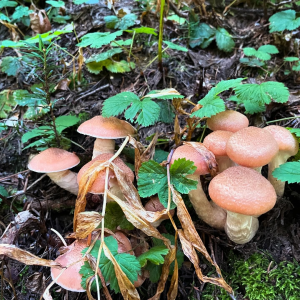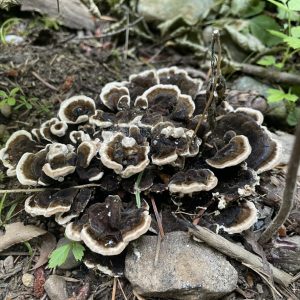 The Columbia City Yoga on-line Moving into Meditation class met this morning. We contemplated the fifth of the Five Remembrances: My actions are my only true belongings. There is no way to escape the consequences of my actions. They are the ground of which I stand. We considered this ground to be compassion. Looking deeply into our response to our impermanence and suffering we can touch each other. We recognize a sixth remembrance: We are of the nature to give care and need care.
The Columbia City Yoga on-line Moving into Meditation class met this morning. We contemplated the fifth of the Five Remembrances: My actions are my only true belongings. There is no way to escape the consequences of my actions. They are the ground of which I stand. We considered this ground to be compassion. Looking deeply into our response to our impermanence and suffering we can touch each other. We recognize a sixth remembrance: We are of the nature to give care and need care.
We heard from My Actions Are My Only True Belongings, a talk given by two senior meditation instructors. Jaune Evans is part of the Every Day Zen community. Chris Fortin is part of the Dharma Heart Zen community. This talk was the sixth and final talk on the Five Remembrances.
We heard the Five Remembrances from the Anguttara Nikaya translated by Zen meditation teacher and scholar, Thich Nhat Hanh. The Anguttara Nikaya is the fourth of the five Nikāyas, or collections, that comprise the Pali Tipitaka of Theravada Buddhism. The Five Remembrances are contemplations which help us touch the nature of impermanence, overcome our fears and cherish the preciousness of life and relationships.
Welcome. Last week we explored loving and witnessing. We are here to offer our open hearted presence. We come home to the world when we can gently remind ourselves: “You Are Here.” So here we are. Together. I think we support each other to live fully. Here are encouraging words of meditation teacher Chris Fortin:
Sitting in the center of our lives, giving ourselves to body and breath, letting go beyond knowledge or knowing, we find a steadfast and fierce confidence to not turn away from the One Heart of the world.
What does it mean to not turn away from the One Heart the world? I think we know the One Heart of the world in realizing compassion. Compassion arises when we recognize that our suffering is universal. We each have our own life experiences of loss and of joy. Looking deeply I can see that my suffering is not mine alone. It is something that I share with every suffering being in the world.
This week in looking deeply I practiced with The Five Remembrances:
I am of the nature to grow old.
There is no way to escape growing old.
I am of the nature to have ill health.
There is no way to escape ill health.
I am of the nature to die.
There is no way to escape death.
All that is dear to me and everyone I love are of the nature to change.
There is no way to escape being separated from them.
My actions are my only true belongings.
I cannot escape the consequences of my actions.
My actions are the ground upon which I stand.
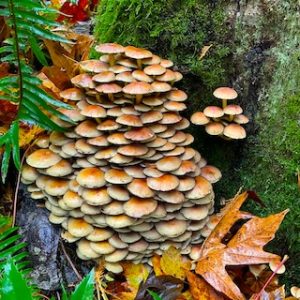 Knowing that I only have so much time left, the last remembrance rings like a bell. Another way of phrasing it is: My deeds are my closest companions. I’m the beneficiary of my deeds. My deeds are the ground on which I stand. Thinking of my actions as companions helps me to recognize that they go on to have a life of their own. I practice to make the ground on which I stand compassion.
Knowing that I only have so much time left, the last remembrance rings like a bell. Another way of phrasing it is: My deeds are my closest companions. I’m the beneficiary of my deeds. My deeds are the ground on which I stand. Thinking of my actions as companions helps me to recognize that they go on to have a life of their own. I practice to make the ground on which I stand compassion.
In her talk on The Five Remembrances Chris describes our potential for compassionate action. She says:
The archetypal Bodhisattva qualities . . . that are ours . . . are activated when we step into “yes I will.” Equanimity. . . . Body breathing in and out. Gentleness, benevolence and compassion, kindness, great perseverance. Taking full responsibility. Asking “how can I help?”
Yes I will. How can I help? Isn’t that what we do when we come together for practice each week? Over these many years we have witnessed one another. We’ve shared experiences of loss through aging, illness and death. We’ve listened and spoken from the heart. How many helpers have we encountered in our lives? Their helping actions are also the ground upon which we stand.
Meditation teach Jaune Evans reminds us:
Spiritual practice is not the way out of suffering. It is the way in. The compassionate way to carefully, directly, investigate suffering and to not to try to run through it. Or skip over it. . . . And then to continuously try let it go. Giving up our fierce loyalty to what we call our own suffering. Separating ourselves . . . Thinking we’re alone. . . .
Even though every one of us suffers. By looking deeply into our own words and actions, our own motivation, our feelings, we touch each other. We reach each other. We go to the end of suffering. . . .
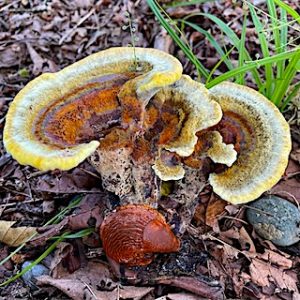 Let us sit here together in the center of our lives. Let us give ourselves to body and breath. Let us go beyond knowing into the One Heart of the world. I invite you to adjust your posture as you need to be aware and at ease. Give yourself a few moments to let all those words move through you. You might take a few deep, slow breaths. Relax what you can.
Let us sit here together in the center of our lives. Let us give ourselves to body and breath. Let us go beyond knowing into the One Heart of the world. I invite you to adjust your posture as you need to be aware and at ease. Give yourself a few moments to let all those words move through you. You might take a few deep, slow breaths. Relax what you can.
Notice the quality of aliveness you feel. Notice how energy may be expressing in your body: perhaps as relaxation or tension, hardness or softness, subtle currents of energy, warm pulsations or buzzy vibrations. Be with what arises. You might sense how it dissipates into a bigger space – a boundless space of awareness.
If there is a sense of doing see if you can let that be. You can let that float on the natural energy of awareness. Let the sense of aliveness support you. Stay with the truth of what’s happening in your experience as effortlessly as you can. You may take a deeper breath now and then. You might swallow or shift position. Settle. Allow experience and sensation, thought and sound appear in your awareness.
You can notice experience changing. Continuous waves of energy unfurling and rebuilding. This energy is always now, the ever present. The unknown arises and you can see life revealing itself. Here, now, with the utter fragility of this world and this moment, not forever just for now. We can only take one breath at a time. Something dies with the outgoing breath. Something is being born with the incoming breath.
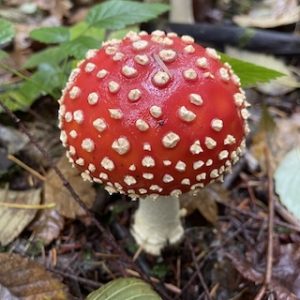 We feel our way through the ever-changing world. I invite you to attune to your heart’s energy. Listen to your own heart’s call to care. Step into “yes I will.” Equanimity. Body breathing in and out. Listening, opening. Sensing loving awareness in your experience of being. What calls for your love and attention? What calls for your creativity and kindness?
We feel our way through the ever-changing world. I invite you to attune to your heart’s energy. Listen to your own heart’s call to care. Step into “yes I will.” Equanimity. Body breathing in and out. Listening, opening. Sensing loving awareness in your experience of being. What calls for your love and attention? What calls for your creativity and kindness?
Teacher Jaune Evans asks us to consider the ground we are standing on:
How well have I loved in this lifetime? That love is done with a beloved, with a tree, with someone we’ve tried to help. Maybe it’s a stranger. Maybe it’s someone you haven’t spoken to in a long time. Sharing our boundless compassion for all beings. Listening, seeing each other . . that’s what the people around us want. People just want to be listened to acknowledged, blessed. These actions, these true belongings, my closest companions.

